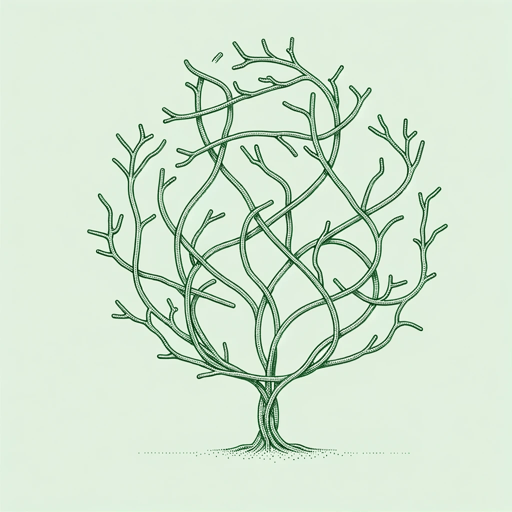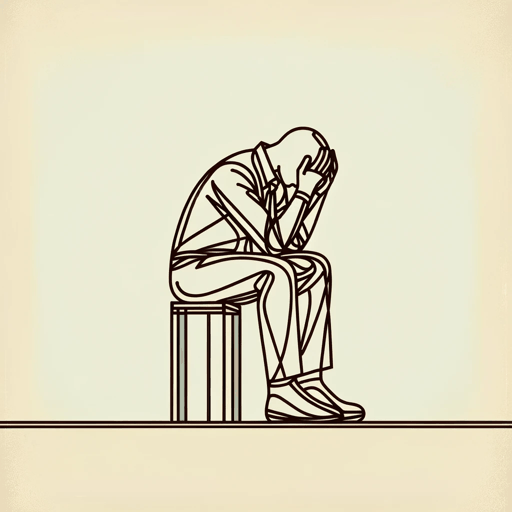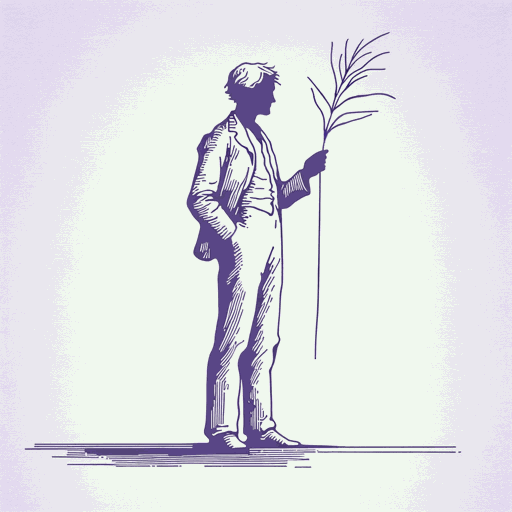38 pages • 1 hour read
Walt WhitmanI Hear America Singing
Fiction | Poem | Adult | Published in 1860A modern alternative to SparkNotes and CliffsNotes, SuperSummary offers high-quality Study Guides with detailed chapter summaries and analysis of major themes, characters, and more. For select classroom titles, we also provide Teaching Guides with discussion and quiz questions to prompt student engagement.
Background
Historical Context
Two events are critical to the historical context of “I Hear America Singing”: Transcendentalism and the Civil War.
The first is an influence that Whitman readily admitted: the rise of New England Transcendentalism and particularly the motivational arguments of Ralph Waldo Emerson. Whitman attended a lecture Emerson delivered in New York in 1842. He had been deeply moved by Emerson’s radical essay titled simply “The Poet,” which called for a new kind of poet for a new kind of nation. The initial volume of Leaves of Grass, published un-ironically on Independence Day, celebrated the unbounded energy of the American imagination as Emerson argued American poets needed to do. Without that context, Walter Whitman, failed everything, would most likely never have evolved into Walt Whitman, America’s Poet. In “I Hear America Singing,” Whitman’s poetic lines are wonderfully irregular, their rhymes and rhythms subtle and unforced, its temperament undeniably bold and inviting, its themes accessible and clarion-clear, its optimism palpable, all reflecting the influence of Emerson.
On a more sobering note, unlike the earlier editions of Leaves of Grass, the volume in which “I Hear America Singing” (1860) appears was necessarily informed against Whitman’s helpless recognition that the nation whose community and collective energy his poem celebrated was, even as the poem was being read in the teeming streets of New York and Boston, coming apart.
Related Titles
By Walt Whitman

A Glimpse
Walt Whitman

America
Walt Whitman

A Noiseless Patient Spider
Walt Whitman

Are you the new person drawn toward me?
Walt Whitman

As I Walk These Broad Majestic Days
Walt Whitman

Crossing Brooklyn Ferry
Walt Whitman

For You O Democracy
Walt Whitman

Hours Continuing Long
Walt Whitman

I Sing the Body Electric
Walt Whitman

I Sit and Look Out
Walt Whitman

Leaves of Grass
Walt Whitman

O Captain! My Captain!
Walt Whitman

Song of Myself
Walt Whitman

Vigil Strange I Kept on the Field One Night
Walt Whitman

When I Heard the Learn'd Astronomer
Walt Whitman

When Lilacs Last in the Dooryard Bloom'd
Walt Whitman
Featured Collections
American Literature
View Collection
Community
View Collection
Modernism
View Collection
Modernist Poetry
View Collection
Nation & Nationalism
View Collection
Required Reading Lists
View Collection
School Book List Titles
View Collection
Short Poems
View Collection
Teams & Gangs
View Collection
Valentine's Day Reads: The Theme of Love
View Collection

